ISCI is an international organized professional home for everyone interested in children’s indicators, including researchers, data users, child advocates, and policymakers. It aims to support and foster collaboration, integrate findings, and disseminate research for developing and using indicators and measurements of children’s well-being.
In 1996, approximately 35 experts from 17 countries met in Jerusalem, Israel for the first international workshop on “Measuring and Monitoring Children’s Well-Being: Beyond Survival”. The foundation for ISCI was laid at this workshop, where the core group of ISCI founders met.
Afterwards, the Jerusalem workshop developed into a multi-national project on “Measuring and Monitoring Children’s Well-Being”, with some 200 participants from more than 30 countries participating in the project workshops and meetings.
In 2005, the Childhood Conference was held in Oslo, Norwayand. this was led to the establishment of the ISCI society. In late 2005, with the support of the AECF, we convened the founding standing committee meeting of ISCI and the ISCI was formally established in 2006.
In 2007, our first inaugural conference was held in Chicago.
Researchers, data users, child advocates, and policymakers have made considerable advances in developing and using indicators to measure child and adolescent well-being.
These advances have been made possible by improvements the collection and use of data, as well as by collaborative efforts at the local, national, regional, and international levels. However, these important efforts have been undertaken without the benefit of an organizing structure to support and foster collaboration, integrate findings, and coordinate and disseminate research. In short, the field is reaching a critical mass without an organized professional home.
The International Society for Child Indicators (ISCI) offers that home.
ISCI brings together experts in the field worldwide to:
- Contribute to the well-being of all children.
- Share knowledge and experience.
- Develop standards.
- Improve data resources.
- Foster collaborative research and projects.
- Foster diversity in methodological approaches.
- Enhance dissemination of information on the status of children.
- Help organizations apply the findings to policy and practice.
- Enhance the capacity of the field in countries that are in the initial stages of producing indicators of child well-being.


